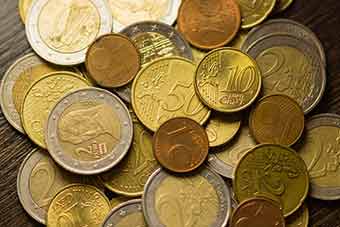
The Euro recovered some ground against the Pound on Thursday after data showed that economic growth in the 18-member currency bloc rallied this month and as the UK currency was softened by weaker-than-forecast retail sales data.
Against the US Dollar the Euro eased away from an eight-month low and strengthened against the New Zealand Dollar following currency weakening comments made by Reserve Bank of New Zealand Governor Graeme Wheeler.
The single currency began to move higher early in Thursdays session after data out of Germany showed that the region’s largest economy saw a recovery in its manufacturing and services sectors this month.
An easing in Spain’s unemployment rate also offered support early on.
Further gains were restrained however as data out of France further highlighted how the Eurozone’s top two economies are diverging.
Activity in Germany’s private sector jumped to a 37-month high with the country’s manufacturing PMI coming in at 52.9 and service sector PMI jumping to 56.6 from the previous month.
France meanwhile saw its private sector shrink yet again with its manufacturing PMI falling to a 15-month low. The nation’s service PMI however did manage to claw its way back above the 50 line which divides contraction from expansion.
The wider Eurozone’s private sector also showed improvement by expanding at its fastest rate in three months in July.
That figure may sound impressive but the report showed that new business was created by companies cutting prices again, something that is likely to put further pressure upon the regions already low inflation rate.
‘This growth is not fast enough to encourage firms to take on staff in sufficiently large numbers to have a meaningful impact on unemployment. The July survey once again saw only very modest job creation. While the periphery is picking up speed and the German economy is growing at a robust 0.7-0.8% pace at the start of the third quarter, the French economy is stagnating at best. At the heart of France’s woes are a stagnant services economy, which points to weak domestic demand and falling confidence among business and households, as well as an increasingly alarming rate of decline in the manufacturing sector,’ said Chris Williamson, chief economist at Markit.
The Pound meanwhile softened after retail sales data came in below economist forecasts. On a month-on-month basis retail sales increased by just 0.1% in June from May. On a yearly basis retail sales increased by 3.6%. Yearly sales excluding fuel grew by 4%, below expectations for a figure of 4.6%.
Despite the data coming in below forecast, UK retail sales volumes in the second quarter were at the strongest level seen in 10 years.
Euro Exchange Rates
[table width=”100%” colwidth=”50|50|50|50|50″ colalign=”left|left|left|left|left”]
Currency, ,Currency,Rate ,
Euro, ,US Dollar,1.3472 ,
,US Dollar,1.3472 ,
Euro, , Pound Sterling,0.7916 ,
, Pound Sterling,0.7916 ,
Euro, ,Australian Dollar,1.4260,
,Australian Dollar,1.4260,
Euro, ,Canadian Dollar,1.4451 ,
,Canadian Dollar,1.4451 ,
Pound Sterling, ,Euro,1.2621 ,
,Euro,1.2621 ,
US Dollar, ,Euro,0.7418 ,
,Euro,0.7418 ,
[/table]

Comments are closed.